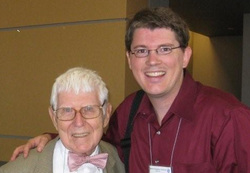Therapy services and Speaking
What is Psychotherapy?
PSYCHOTHERAPY is a unique experience in which you can safely explore and learn about your feelings, thoughts and behavior in a supportive, non-judgmental environment. Most people seek out therapy because they have a strong desire to make their life better, yet are unable to move past or let go of old issues. Difficulties often include relationship turmoil, communication chaos and conflict problems, career confusion, uncontrolled mood changes, intimacy issues, anxiety, depression, stress and tension, all of which interfere with peace, contentment, and self-confidence.
Short-term therapy can help you deal with specific problems by clarifying and finding truth in your thoughts, modifying your emotional responses and expanding your options.
Long-term therapy can transform your life – from one that’s plagued with stress, tension and negativity to one that’s enriched, energized and enthusiastic.
What should I expect?
During our first session, I will seek to learn some general information about who you are and specific information about what is happening in your life that is difficult to manage right now. We might call these “barriers” or psychological “blocks”; or more simply, problems. My goals in the first session are to make sure you feel listened to and heard, identify and conceptualize your problems.
PLANNING YOUR TREATMENT
Within the first few sessions, we will discuss your diagnosis (if applicable, necessary, and useful) and a treatment plan based on our mutual understanding of your needs and problems. Some clients prefer open-ended therapy that allows them to continue until they ready to stop. Others, either because of preference or practical constraints, prefer a short, structured approach with a predetermined number of sessions. My goal will be to find a match with your needs and our treatment plan. My interest is in doing what is best for you.
TREATMENT GOALS
The goals of treatment depend on your problems, symptoms, and diagnosis. The outcome I seek for you is for therapy to improve your well-being. This includes increasing your positive emotion (developing coping strategies for future difficulties), improving your engagement in life, improving your relationships, and helping you to achieve your goals. This will include thinking better about who you are and experiencing more freedom in the choices available to you. Treatment will have two general goals: symptom reduction and improving your well-being. More specifically, the goals of treatment are individualized and depend on what you bring to the table.
When you are ready to end therapy, we will spend some time talking about what your experience has been, what you’ve accomplished, and whether there is anything you didn’t get to that might be something you’d like to explore at a later time. I will support you in your desire to conclude this piece of your work at whatever time you’re ready.
WHAT IS MY THERAPY APPROACH?
I use Cognitive Therapy as my primary approach. Cognitive therapy is a focused, problem-solving psychotherapy that has been shown in over 400 outcome studies to be highly effective for the treatment of many mental health problems such as depression, general anxiety disorders, panic, anger and marital distress. It has also been shown to be effective in the treatment of medical conditions such as chronic pain, hypertension, and fibromyalgia.
In Cognitive therapy, the therapist and client work together as a team to identify and solve problems, and therapists help clients to overcome their difficulties through changing their thinking, behavior, and emotional responses.
Time Magazine (01/20/03) has stated that Cognitive Therapy is "...quick, practical, goal oriented." It involves three primary activities: a) Education, b) Skill Building, and and c) Problem Solving. During treatment, the client actively applies strategies learned to the problems which brought them to therapy. If indicated, Cognitive Therapy is also compatible with the use of prescribed medication.
I also utilize EMDR (Eye-Movement Desensitization and Reprocessing) as a way to help people experience healing through the processing of traumatic memories. EMDR is an evidence-based treatment for trauma.
Call to schedule an initial consultation at (612)-501-5358 if you are in the Sarasota/Bradenton/St. Petersburg, SW Florida area. Evening and weekend appointments available.
Office is located at 1990 Main Street, Suite 750 Sarasota, FL 34236
|
SPEAKING ENGAGEMENTS
Dr. van Ingen provides seminars as a national speaker on anxiety. He also speaks on evidence based psychological treatment, finding your strength such as resilience in difficult times, and developmental & intellectual disabilities – teaching can be for professionals, college classrooms, or the general public. Dr. van Ingen has trained professionals and behavioral experts for over 10 years with a wide range of seminars. He also provides marriage seminars on the latest research on marriages, dating, and couples relating. His delivery style is comical and engaging, rich in examples and practical with skills. Dr. van Ingen is beginning to give parenting talks. His first parenting talk is this April and has been doing parenting podcasts via this website since 2012. To contact Dr. van Ingen about his availability, click here. |


